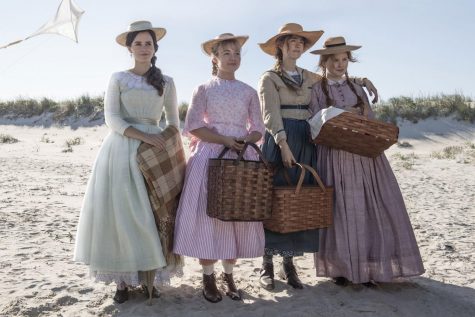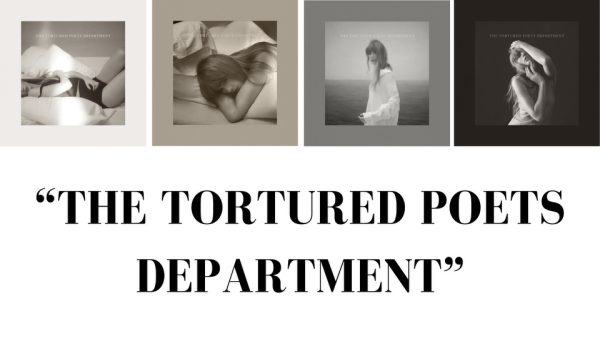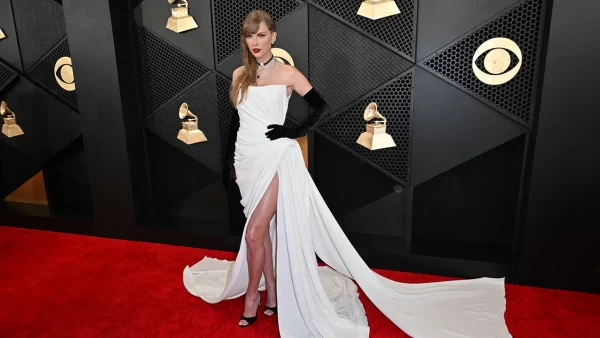Opinion: Why People are Upset About the Oscar Nominations
February 18, 2020
On January 13th, the Academy announced their nominees for the 2020 Academy Awards, colloquially known as the “Oscars”. The 2019/20 season has been regarded by critics as one especially strong for cinema, so film buffs were waiting anxiously to see which of the numerous great films would be nominated for the highest honor for the silver screen. But when the nominations were announced by John Cho and Issa Rae, many people were disappointed by the obvious lack of women and people of color in the major directing and acting categories.
Of the nine films that were nominated for Best Picture, two of which were directed by women, not a single woman was nominated for Best Director. This includes Greta Gerwig, critically acclaimed for her movie Little Women, and one of the five women ever nominated for Best Director in the history of the Academy. In the acting categories, of the 20 men and women nominated, only one is not a white person (potential EGOT winner Cynthia Erivo for Harriet). This has shocked Oscar viewers, especially due to the abundance of people of color in the nominated films, such as the all-Asian cast of the hit movies Parasite and The Farewell. People were wondering why the academy were snubbing these creators and movies, and what the reasoning was behind these nominations. This points to an enduring trend in show business, where society views stories by women and POC to be watched only by women and POC, and films geared for men are to be watched by everyone.
When addressing the issue of the lack of nominations for Little Women, you can go all the way back to the publication of the famous book in the 1860’s. According to Vox article, “In 2020, Little Women has a men problem. But it used to be seen as a story for everyone“, the novel about four women’s coming of age was originally viewed as a rare novel that bridged the gender gap and appealed to boys and girls equally. Famously, President Teddy Roosevelt considered Little Women his favorite book. But in the early 20th century, the trends of readership shifted, and “girl books” fell out of the mainstream. This comes on the heels of a cultural phenomenon in which girls were willing to read “boy books”, and boys were not willing to read, “girl books”. The publishing industry and educational system toted this theory, pandering male coming-of-age stories while leaving girls to find books about their own gender in their free time instead of as part of a curriculum. This phenomenon is still present today, where students are required to read books such as, Catcher in the Rye, Lord of the Flies, The Odyssey, Huckleberry Finn, Of Mice and Men, and The Great Gatsby, which all deal with masculinity in society, offset only by To Kill a Mockingbird, which focuses mainly on racial and socioeconomic issues instead of it’s female narrator. In today’s society, men are not expected to accept material created for the opposite gender, while women are.

This translates directly into the reception of female-directed and starring films Little Women and the Farewell both at award shows and in the general public. As soon as it’s release, many people took to social media to swear off never watching Little Women due to it being only enjoyable for women. Many wrote the film off in the genre of, “costume drama”, instead of an oscar-worthy piece of cinema. This translated into Best Director nominations, many justifying the lack of nominations for Greta Gerwig and Lulu Wang due to their movies not demonstrating the same flashy directorial styles exemplified by Todd Philips and Martin Scorsese the same year. Many think that making a film feel epic (1917, the Irishman) takes more skill than making a movie feel intimate (Little Women, the Farewell). On the contrary, the total rehauling of Little Women’s narrative structure to further extrapolate the themes of the story, and the highlighting of the conflict between family and cultural differences in the Farewell shows a great deal of talent in both directors (arguably more than ripping your film from King of Comedy, sorry Todd Philips). But the Academy has always been drawn to showy displays of technology and storytelling, such as the one-shot presentation of Sam Mendes’ 1917, than any heart-warming family story.
This extrapalory reasoning aside, critics are protesting Little Women and Parasite’s lack of nominations due to merit alone. According to the same Vox article, “Little Women is one of most successful movies of 2019. It has a 95 percent fresh rating at Rotten Tomatoes, a score of 91 at Metacritic, and it’s grossed $60 million at the box office.” Parasite is even more critically acclaimed, according to Vox article, “Why the Parasite cast deserves Oscars — and didn’t get nominated”, calling Parasite the “top scoring film of 2019” with an average Metacritic score of 96, as opposed to the highly-nominated Joker’s score of 59.

Despite being widely acclaimed by critics and movie-goers alike, Parasite was considered snubbed by many die hard fans. Despite walking away with “Best Picture”, and “Best Director” nominations, not a single member of the fantastic cast was given an acting nomination. This is a continuing theme, where the cast was also not nominated at the Golden globes, or at the BAFTA’s, and only got ensamble nominations at the SAG and Spirit Awards. Despite nearly everyone agreeing that Parasite is amazing and well-acted, the lack of nominations for anyone in the cast may reveal something else about the Academy and other Hollywood awards. According to Insider, since the founding of the Academy Awards, around 933 actors have been nominated for acting roles over 91 years, of which 36 actors have been nominated for non-English performances. That’s only 3% of all Oscar performances. Some critics have accredited this to Academy voters supposed reluctance to view acting performances not in English on the same par as those in English, despite obviously watching foreign films for the Best Foreign Film category.
As of 2019, Oscar voters were 94 percent Caucasian and 77 percent male according to Hollywood Reporter article, “How the “New Academy” Is Changing the Oscar Race”. The lack of representation in the Oscar voting body allows for films that appeal to a mass audience slip through the gaps, as the predominantly white male voters are more likely to vote for films they can personally relate to.

As of right now, there is not much the general public can do except raise awareness for the cause of diversity being awarded. The Academy is trying to expand and bring in new members in order to better represent the general public, but this is an effort that will take time. Kirsten Schaffer, Executive Director of Women in Film, LA said of this Oscar season, “The Academy has made efforts to balance its voting bodies, but gender equality and diversity do not just happen. Without deep systemic change in the industry and a real commitment to equity in film finance, distribution, and marketing, this bleak trend will continue.”
https://www.vox.com/culture/2020/1/24/21070877/little-women-best-picture-oscars-2020-win-lose
https://www.vox.com/2020/1/10/21058140/parasite-oscars-2020-nominations-cast











